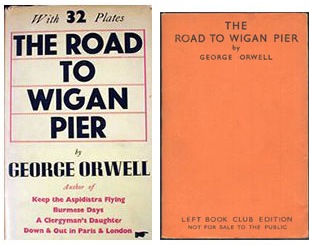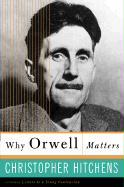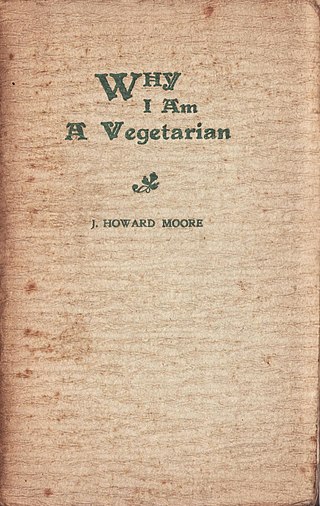Related Research Articles

Animal Farm is a satirical allegorical novella, in the form of a beast fable, by George Orwell, first published in England on 17 August 1945. It tells the story of a group of anthropomorphic farm animals who rebel against their human farmer, hoping to create a society where the animals can be equal, free, and happy. Ultimately, the rebellion is betrayed, and under the dictatorship of a pig named Napoleon, the farm ends up in a state far worse than before.

Eric Arthur Blair was a British novelist, poet, essayist, journalist, and critic who wrote under the pen name of George Orwell, a name inspired by his favourite place, the River Orwell. His work is characterised by lucid prose, social criticism, opposition to all totalitarianism, and support of democratic socialism.
Gaudy Night (1935) is a mystery novel by Dorothy L. Sayers, the tenth featuring Lord Peter Wimsey, and the third including Harriet Vane.

The Road to Wigan Pier is a book by the English writer George Orwell, first published in 1937. The first half of this work documents his sociological investigations of the bleak living conditions among the working class in Lancashire and Yorkshire in the industrial north of England before World War II. The second half is a long essay on his middle-class upbringing, and the development of his political conscience, questioning British attitudes towards socialism. Orwell states plainly that he himself is in favour of socialism, but feels it necessary to point out reasons why many people who would benefit from socialism, and should logically support it, are in practice likely to be strong opponents.

"Shooting an Elephant" is an essay by British writer George Orwell, first published in the literary magazine New Writing in late 1936 and broadcast by the BBC Home Service on 12 October 1948.

"Politics and the English Language" (1946) is an essay by George Orwell that criticised the "ugly and inaccurate" written English of his time and examined the connection between political orthodoxies and the debasement of language.

Barry Unsworth FRSL was an English writer known for his historical fiction. He published 17 novels, and was shortlisted for the Booker Prize three times, winning once for the 1992 novel Sacred Hunger.

George Warwick Deeping was an English novelist and short story writer, whose best-known novel was Sorrell and Son (1925).
"Such, Such Were the Joys" is a long autobiographical essay by the English writer George Orwell.

Daniel Wallace is an American author. He is best known for his 1998 novel Big Fish: A Novel of Mythic Proportions. His other books include Ray in Reverse and The Watermelon King. His stories have also been published in a number of anthologies and magazines, including The Year's Best Fantasy and Horror.
"Lear, Tolstoy and the Fool" is an essay by George Orwell. It was inspired by a critical essay on Shakespeare by Leo Tolstoy, and was first published in Polemic No. 7.
"Inside the Whale" is an essay in three parts written by George Orwell in 1940. It is primarily a review of Tropic of Cancer by Henry Miller with Orwell discoursing more widely over English literature in the 1920s and 1930s. The biblical story of Jonah and the whale is used as a metaphor for accepting experience without seeking to change it, Jonah inside the whale being comfortably protected from the problems of the outside world. It was published, alongside two other pieces by Orwell, 11 March 1940 by Gollancz in Orwell's first collection of essays, Inside the Whale and Other Essays.

Why Orwell Matters, released in the UK as Orwell's Victory, is a book-length biographical essay by Christopher Hitchens. In it, the author relates George Orwell's thoughts on and actions in relation to: The British Empire, the Left, the Right, the United States of America, English conventions, feminism, and his controversial list for the British Foreign Office.
'Notes on Nationalism' is an essay completed in May 1945 by George Orwell and published in the first issue of the British magazine Polemic in October 1945. Political theorist Gregory Claeys has described it as a key source for understanding Orwell's novel Nineteen Eighty-Four.
"Politics vs. Literature: An Examination of Gulliver's Travels" is a critical essay published in 1946 by the English author George Orwell. The essay is a review of Gulliver's Travels with a discussion of its author Jonathan Swift. The essay first appeared in Polemic No 5 in September 1946.
"A Good Word for the Vicar of Bray" is an essay by the English author George Orwell. In it Orwell encourages the public-spirited action of planting trees, which may well make up for the harm people do in their lives. The essay was first published in Tribune on 26 April 1946.

The bibliography of George Orwell includes journalism, essays, novels, and non-fiction books written by the British writer Eric Blair (1903–1950), either under his own name or, more usually, under his pen name George Orwell. Orwell was a prolific writer on topics related to contemporary English society and literary criticism, who has been declared "perhaps the 20th century's best chronicler of English culture." His non-fiction cultural and political criticism constitutes the majority of his work, but Orwell also wrote in several genres of fictional literature.

Nineteen Eighty-Four is a dystopian novel and cautionary tale by English writer Eric Arthur Blair, who wrote under the pen name George Orwell. It was published on 8 June 1949 by Secker & Warburg as Orwell's ninth and final book completed in his lifetime. Thematically, it centres on the consequences of totalitarianism, mass surveillance, and repressive regimentation of people and behaviours within society. Orwell, a staunch believer in democratic socialism and member of the anti-Stalinist Left, modelled the Britain under authoritarian socialism in the novel on the Soviet Union in the era of Stalinism and on the very similar practices of both censorship and propaganda in Nazi Germany. More broadly, the novel examines the role of truth and facts within societies and the ways in which they can be manipulated.

"Good Bad Books" is an essay by George Orwell first published in Tribune on 2 November 1945. After Orwell's death, the essay was republished in Shooting an Elephant and Other Essays (1950).

Why I Am a Vegetarian is an 1895 pamphlet based on an address delivered by J. Howard Moore before the Chicago Vegetarian Society. It was reprinted several times by the society and other publishers.
References
- ↑ "Why I write: Full". orwellfoundation.com. The Orwell Foundation.
- ↑ Why I Write at Faded Page (Canada)
- ↑ "Why I write: Full text". gutenberg.net.au. Project Gutenberg Australia.
- ↑ "Why I write: Full text". orwell.ru.
- ↑ Smothered Under Journalism, p.320